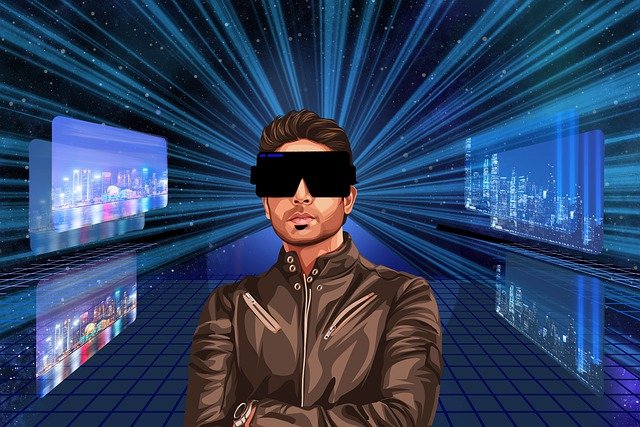While the children of existing social media seem all agog to embrace the metaverse, it seems that the same dangers face them in this new world, just dressed in 3D, Virtual Reality (VR) and Augmented Reality (AR).
When Facebook became Meta, the metaverse suddenly shot to the limelight. Although, it was very much in the making already, and it still isn’t as ready as some are claiming, it’s a hot topic right now.
And it’s coming. In the future, we are likely to be doing many more things on the metaverse, like playing games, attending meetings, and interacting on social media.
Social media is about to get extra immersive, with tech like 3D animation, VR and AR assisting. Meta has already been testing new avatar reactions in Instagram Stories. According to Verdict, the metaverse will be an extension of social media, most attractive to ‘generation hashtag’.
The Tech Panda spoke to Praveen Jayachandran, Co-founder of Holocraft, a Chennai based virtual production and real-time animation startup. He predicts a few changes in the social media space for consumers if/when the metaverse takes over.
He predicts that the metaverse will be an extension of social media, adding immersion into the equation, bringing new experiences to consumers.

Praveen Jayachandran
The metaverse will combine several familiar aspects of social media, such as collaboration, ecommerce, and live events with immersive experiences based on VR and AR
“The metaverse will combine several familiar aspects of social media, such as collaboration, ecommerce, and live events with immersive experiences based on VR and AR. However, it will take time, as the metaverse is still mostly conceptual, and its underlying technologies are still maturing,” he explains.
“Meanwhile, regulators will closely follow the development of the metaverse to highlight any potential harm to users and users’ data,” he says.
Dangers of Social Media Will Be Magnified
With interactions on a much more personal level, where avatars are customised to represent as close as possible to a user’s personality, the metaverse will face challenges when it comes to handling misinformation and comment moderation.
Developers are already saying that data privacy, security, disinformation and hate speech will be the most potent challenges for the metaverse. Even though Facebook has gone to the extent of changing its name to leave behind its toxic legacy.
In an article on Slate, the author describes his experience of having moderated a virtual event, where cartoon avatars hobnobbed with each other. It’s worth a read to understand this new world that many of us haven’t seen yet.
Today’s relatively crude virtual and augmented reality devices already demonstrate that people react to the metaverse with immediacy and emotional response similar to what they would experience if it happened to them in the offline world
“As companies race to build new metaverse platforms, though, they’re also attracting the same toxic users who have wrought havoc on traditional two-dimensional social media sites for decades,” the author makes a valid point.
Jayachandran warns that increased immersion means that all the current dangers of the internet will be magnified.
“Today’s relatively crude virtual and augmented reality devices already demonstrate that people react to the metaverse with immediacy and emotional response similar to what they would experience if it happened to them in the offline world,” he says.
“There will be a mix of tech and human, with AI taking the lead on the tech side to flag the more obvious and egregious offences. It’s likely that human agents would have an avatar of their own, and potentially even enter a metaverse portal,” he adds.
Metaverse Will Collect More Intimate User Data
How will data security be handled in a metaverse? Ideally, the companies that are in the process of creating the metaverse have a chance to do it right this time before it runs amok like current social media. But I am just dreaming.
Just as with social media platforms, privacy issues will be at the forefront of the metaverse as it develops and begins to gain widespread traction by users.
Compared to traditional social media, metaverse platforms can track individuals in a much more intimate manner. Companies can monitor physiological responses and biometric data such as facial expressions, vocal inflections, and vital signs in real time while participants are in their metaverse
Jayachandran points out that one aspect of the metaverse that raises privacy concerns is the vast amount of personal data that’s likely to be collected on participating individuals.
“Compared to traditional social media, metaverse platforms can track individuals in a much more intimate manner. Companies can monitor physiological responses and biometric data such as facial expressions, vocal inflections, and vital signs in real time while participants are in their metaverse,” he warns.
“This depth of information allows companies to gain a deeper understanding of user behaviour, which in turn can be used to tailor advertising campaigns in an exceptionally targeted way,” he says.
Read more: Could Meta owned ‘metaverse’ become a lotus eaters’ island where we forget Facebook’s murky past?
While ‘generation hashtag’ seems all agog to embrace the metaverse, it seems that the same dangers face them in this new world, just dressed in 3D, AR, and VR. Here is a chance to start over and do things right this time.
Will the new users of the metaverse listen to some advice of caution before they step into this wondrous though unknown world? Sadly, I think not.












